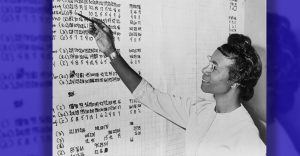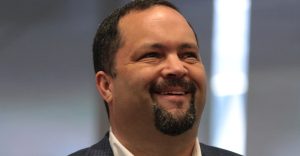Activism
Opinion: The Murder of Ahmaud Arbery — and Our Continuing Terror

Today there is a national outcry about the murder of Ahmaud Arbery. The public condemnation has forced a belated response.
Those accused of his murder finally have been arrested. His murder has become a global embarrassment for whites.
For Blacks, however, it is another humiliation, a continuing terror. It is the normal silence, however, that condemns thousands of African Americans to unjust deaths and millions to shattered lives. When the camera turns away, the savage injustice that embarrasses us becomes simply business as usual.
The horror of Ahmaud Arbery’s murder is now well known. The 25-year-old Black man went for a jog down the middle of the street in the middle of the day on Feb. 23. Two white men decided he was suspicious, hunted him down and shot him point-blank in the middle of the street at 1 p.m.
Local law enforcement had video evidence of the crime. Yet no arrest was made until 74 days later, two months and two weeks after the murder. Local authorities chose not to act. Two U.S. senators said nothing. The white church — that had blessed slavery, segregation, apartheid in South Africa — was silent.
Why did the arrests finally take place? Because an intrepid reporter from the New York Times investigated the story and made it public; the murder video was leaked to the public on the 72nd day after Ahmaud’s murder.
As the public outrage grew, the arrests were made. Never forget, as one commentator noted, they did not make the arrests because THEY saw the incriminating video. They made the arrests because WE saw the video. Embarrassed, faced with an aroused community and an international scandal, they finally acted.
So it goes. African Americans suffer in silence the savage injuries of institutionalized racism.
We live in northern ghettos — driven there in the early part of the last century by terrorism — most strikingly the Ku Klux Klan and their signature lynchings. The Equal Justice Initiative reports there were 4,084 lynchings of Blacks in the South from 1877 to 1950. The Klan, embraced by and often made up of the white gentry of the South, often gathered at their churches to organize the public lynchings. They terrorized Blacks to end the fusion multiracial coalitions that grew up in the Reconstruction and to take back control of their states.
The lynchings and violence were greeted with silence, if not approval. White authorities, white churches, white society turned their heads if they weren’t applauding in approval.
Fleeing north, Blacks were redlined into ghettos, with jobs hard to get, and discrimination closing doors. To this day, African Americans are last hired and first fired. We suffer the worst poverty, the highest unemployment, the highest childhood hunger and malnutrition, the most inadequate health care. This reality is sustained by the silence of white elites, the silence of the white church, the silence of the evangelicals, the silence of the best-minded citizens.
Then, the virus hits, and its most lethal effect is on those who are vulnerable: the elderly, the sick, the hungry, those with asthma and obesity. It hits hardest among the suddenly proclaimed “essential workers” who do the work that previously was largely “invisible: the bus drivers, the grocery clerks, the nurses and medical aides. Not surprisingly, African Americans make up a disproportionate number of those killed or infected by the virus.
The racial disparities are so stark that they gain national and international attention. Pundits express shock and outrage at the reports as if they were surprised by the results. Editorials demand reform. Politicians call for action. The informed public is embarrassed.
But little happens: the rescue packages passed by Congress send most of the money to the biggest companies and the most affluent investors. Banks are saved; the post office — with a largely minority workforce — is starved. Hunger spreads. Any expansion of food stamps is blocked.
Arrested for leading nonviolent protests against segregation, Dr. Martin Luther King penned his letter from the Birmingham jail expressing his grave disappointment with the “white moderate” and the “white church.” He suggested that the “great stumbling block” for African Americans seeking their freedom is “not the White Citizen’s Councilor or the Ku Klux Klanner, but the white moderate “who is more devoted to order than to justice.” He decried a religious community “largely adjusted to the status quo, standing as a tail-light behind other community agencies rather than a headlight leading men to higher levels of justice.”
The virus didn’t discriminate. The society enforced the discrimination; the virus just preyed upon its victims. We have gone too long, struggled too hard to adjust to the reality that it is dangerous to be Black while jogging or to be Black in a pandemic.
It isn’t enough to express dismay when the newspapers highlight the horrors. We need leaders and citizens of conscience who will act and not rest until justice is done.
Activism
Oakland Post: Week of November 26 – December 2, 2025
The printed Weekly Edition of the Oakland Post: Week of November 26 – December 2, 2025

To enlarge your view of this issue, use the slider, magnifying glass icon or full page icon in the lower right corner of the browser window.
Activism
Oakland Post: Week of November 19 – 25, 2025
The printed Weekly Edition of the Oakland Post: Week of November 19 – 25, 2025

To enlarge your view of this issue, use the slider, magnifying glass icon or full page icon in the lower right corner of the browser window.
Activism
IN MEMORIAM: William ‘Bill’ Patterson, 94
Bill devoted his life to public service and education. In 1971, he became the founding director for the Peralta Community College Foundation, he also became an administrator for Oakland Parks and Recreation overseeing 23 recreation centers, the Oakland Zoo, Children’s Fairyland, Lake Merritt, and the Henry J. Kaiser Convention Center.

William “Bill” Patterson, 94, of Little Rock, Arkansas, passed away peacefully on October 21, 2025, at his home in Oakland, CA. He was born on May 19, 1931, to Marie Childress Patterson and William Benjamin Patterson in Little Rock, Arkansas. He graduated from Dunbar High School and traveled to Oakland, California, in 1948. William Patterson graduated from San Francisco State University, earning both graduate and undergraduate degrees. He married Euradell “Dell” Patterson in 1961. Bill lovingly took care of his wife, Dell, until she died in 2020.
Bill devoted his life to public service and education. In 1971, he became the founding director for the Peralta Community College Foundation, he also became an administrator for Oakland Parks and Recreation overseeing 23 recreation centers, the Oakland Zoo, Children’s Fairyland, Lake Merritt, and the Henry J. Kaiser Convention Center.
He served on the boards of Oakland’s Urban Strategies Council, the Oakland Public Ethics Commission, and the Oakland Workforce Development Board.
He was a three-term president of the Oakland branch of the NAACP.
Bill was initiated in the Gamma Alpha chapter of Kappa Alpha Psi Fraternity.
In 1997 Bill was appointed to the East Bay Utility District Board of Directors. William Patterson was the first African American Board President and served the board for 27 years.
Bill’s impact reached far beyond his various important and impactful positions.
Bill mentored politicians, athletes and young people. Among those he mentored and advised are legends Joe Morgan, Bill Russell, Frank Robinson, Curt Flood, and Lionel Wilson to name a few.
He is survived by his son, William David Patterson, and one sister, Sarah Ann Strickland, and a host of other family members and friends.
A celebration of life service will take place at Henry J. Kaiser Convention Center (Calvin Simmons Theater) on November 21, 2025, at 10 AM.
His services are being livestreamed at: https://www.facebook.com/events/1250167107131991/
In lieu of flowers, donations can be made to the Euradell and William Patterson scholarship fund TBA.

-

 Activism4 weeks ago
Activism4 weeks agoOakland Post: Week of November 12 – 18, 2025
-

 Activism3 weeks ago
Activism3 weeks agoIN MEMORIAM: William ‘Bill’ Patterson, 94
-

 Activism4 weeks ago
Activism4 weeks agoHow Charles R. Drew University Navigated More Than $20 Million in Fed Cuts – Still Prioritizing Students and Community Health
-

 Bay Area4 weeks ago
Bay Area4 weeks agoNo Justice in the Justice System
-

 #NNPA BlackPress3 weeks ago
#NNPA BlackPress3 weeks agoLewis Hamilton set to start LAST in Saturday Night’s Las Vegas Grand Prix
-

 #NNPA BlackPress3 weeks ago
#NNPA BlackPress3 weeks agoBeyoncé and Jay-Z make rare public appearance with Lewis Hamilton at Las Vegas Grand Prix
-

 Activism2 weeks ago
Activism2 weeks agoOakland Post: Week of November 19 – 25, 2025
-

 #NNPA BlackPress4 weeks ago
#NNPA BlackPress4 weeks agoThe Perfumed Hand of Hypocrisy: Trump Hosted Former Terror Suspect While America Condemns a Muslim Mayor





















































